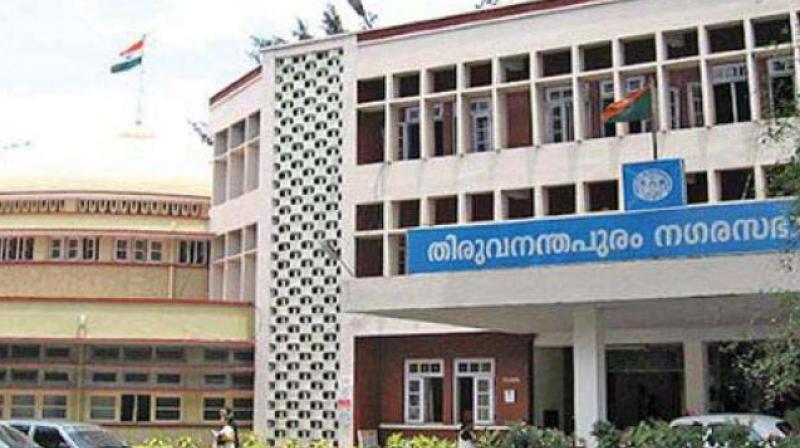Novel way to solve high-rise waste

Thiruvananthapuram: These days, when anyone wonders how to manage waste in a high-rise apartment, corporation officials recommend a visit to an apartment complex at Kazhakkoottam . Now, as the corporation has invited various apartment owners’ associations for a meeting on October 25, the system at Intimate Agastya might be one of the waste management models to be discussed.
In the corporation 105 apartment complexes have set up biobins, utilising a 50 per cent subsidy offered by the Corporation. But the Kazhakkoottam apartment complex hasn’t relied on a subsidy.
The builder had left behind an electric-powered 25-kg Organic Waste Converter, setting up which wo-uld have cost more than Rs 2 lakh. They have also set up a material recovery facility (MRF) with space for elaborate segregation, though it takes up just about 100 square feet. “We would store plastic bottles and carry bags, and give it to the corporation when there is a collection drive. Other categories of waste stored include glass bottles; worn out sandals and bags; e-waste; thermocol.
Paper that scrap dealers don’t take is sent to incinerator. “Next month, we are conducting a campaign so that menstruators make sustainable choices like menstrual cups,” says Intimate Agastya Owners’ Association president Venugopal V Nair.
However it is not just the physical infrastructure that made a difference. They have taken steps to ensure that the residents here change their attitude towards waste, thinking about it as their own responsibility.
To begin with, no personnel has been appointed to collect waste from each apartment. The residents have to bring waste to the organic waste converter in a bucket given to them. Their inorganic waste can be brought in another bucket. However if at all it is unwashed, or not dry, there is a penalty. Cameras have been installed to identify offenders who leave unsegregated waste.
Some of the apartments are occupied by tenants who are new to the idea of segregation, but with such measures they too will gradually change, says a resident. Any new visitor on the complex is greeted by notice boards about zero-waste, reduced use of plastic and waste being one’s own responsibility.
There is a sale of vegetables twice a week, from their rooftop garden replenished by the compost. The rest of the compost is given to an agricultural farm at Chengottukonam owned by the Corporation.

